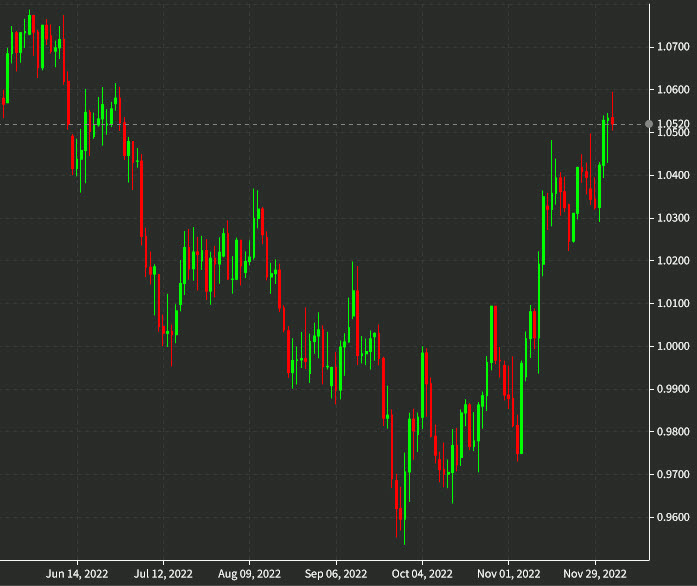This is a tough time for forecasting the US economy. In the space of 15 minutes there were two reports on the US service sector; one said the US economy was contracting at a 1% clip, the other showed an economy accelerating.
The latter one was the ISM services report and it has a longer and strong track record so that's where markets are focused. The reading of 56.5 on services compares to 53.3 expected and it's led to a big US dollar rally.

The thinking is that we might not be at the peak of US rates after all. For sure the Fed is going to pause at some point next year around 5% but if the numbers keep running hot like this, they won't pause for long.
What worries me is that 95% of Americans aren't directly affected by rising rates. The vast majority are on 30-year fixed rate mortgages and 5% rates aren't high enough to sting profitable businesses enough to start layoffs. Yes, capital is tougher to come by but the jobs market is tight and good workers still have plenty of bargaining power.
The worry is that 5% rates aren't going to be enough and the Fed will eventually have to hike to 6-7% (or higher). The issue is that we don't really know how the US economy will react to those rates then. It's been so long since the US has had genuinely high rates that it's a tough call. Yes, companies (especially public companies) will feel pressure to cut costs as share prices decline but they're also able to raise prices.
What worries me more are stocks and bonds competing for capital. If we get 6-10% yielding corporate bonds, how much money does that suck out of equities? What are the right multiples? And if market multiples contract, will companies even try to boost share prices by cutting staff or fighting for market share?
As for FX, when you zoom out the picture is so much better in the US than in Europe. Energy is calamitous for Europe and until the war ends (and probably not for some time afterwards) I don't see energy prices coming down. So instead of the US cooling, foreign companies might simply feast on European market share.
